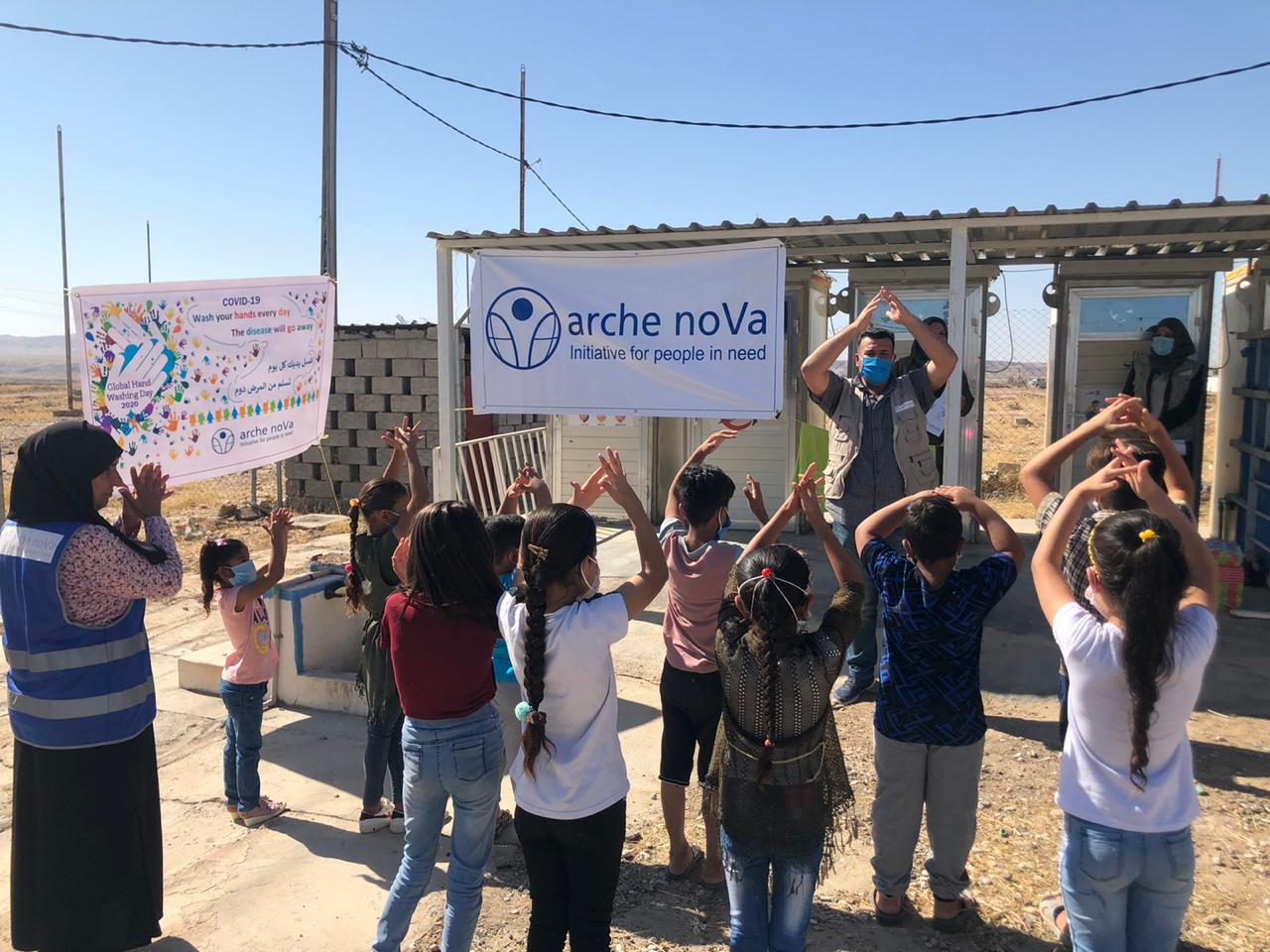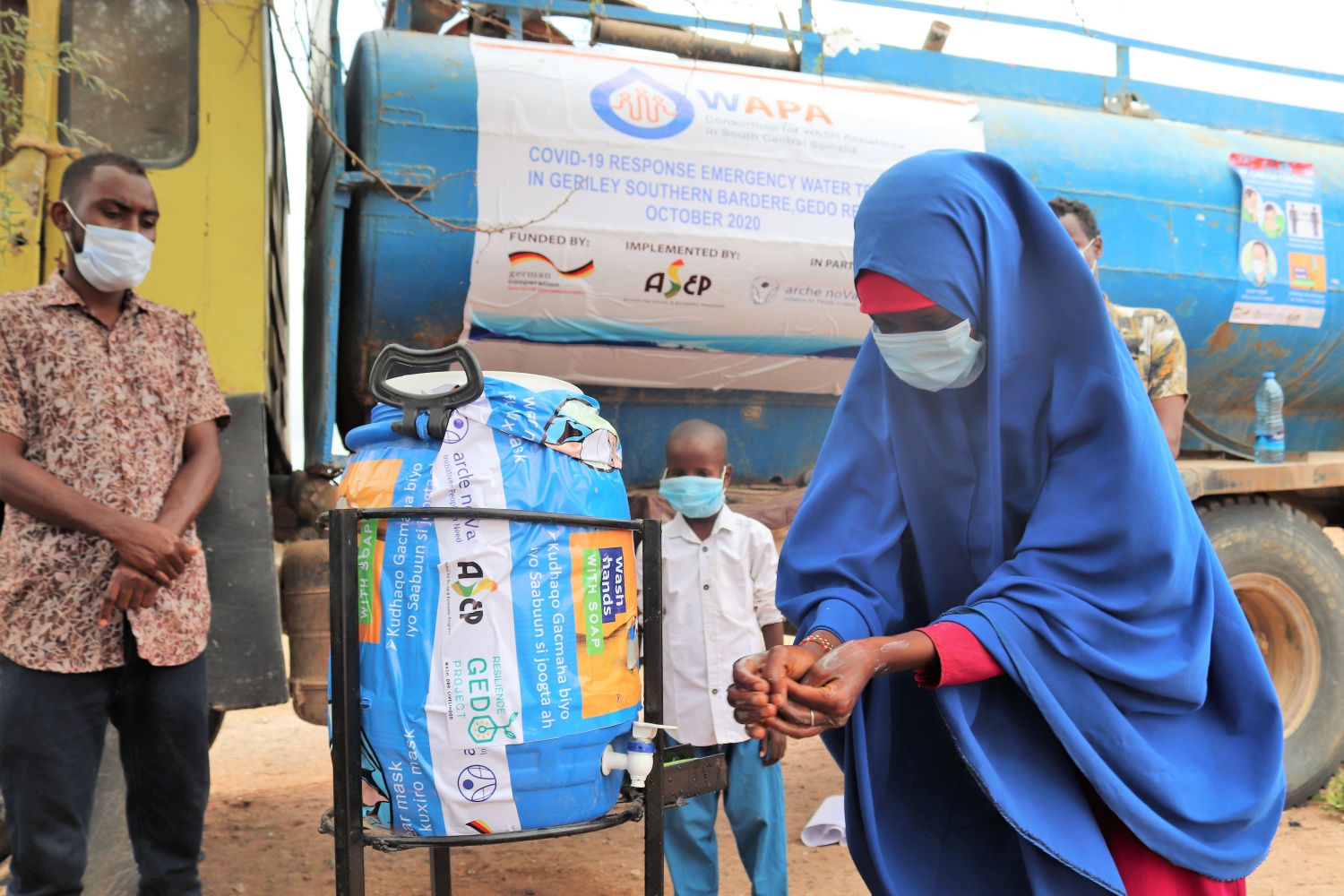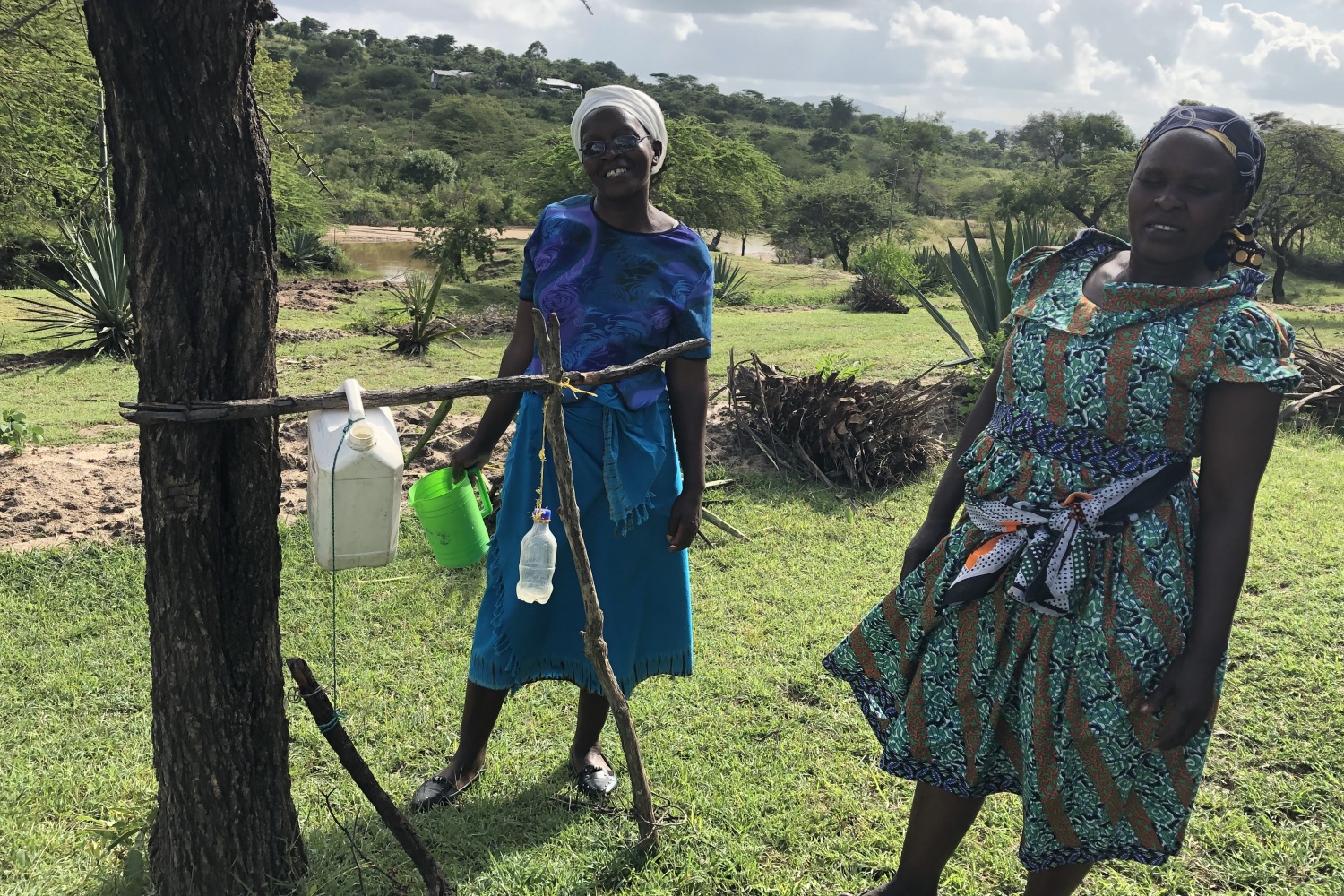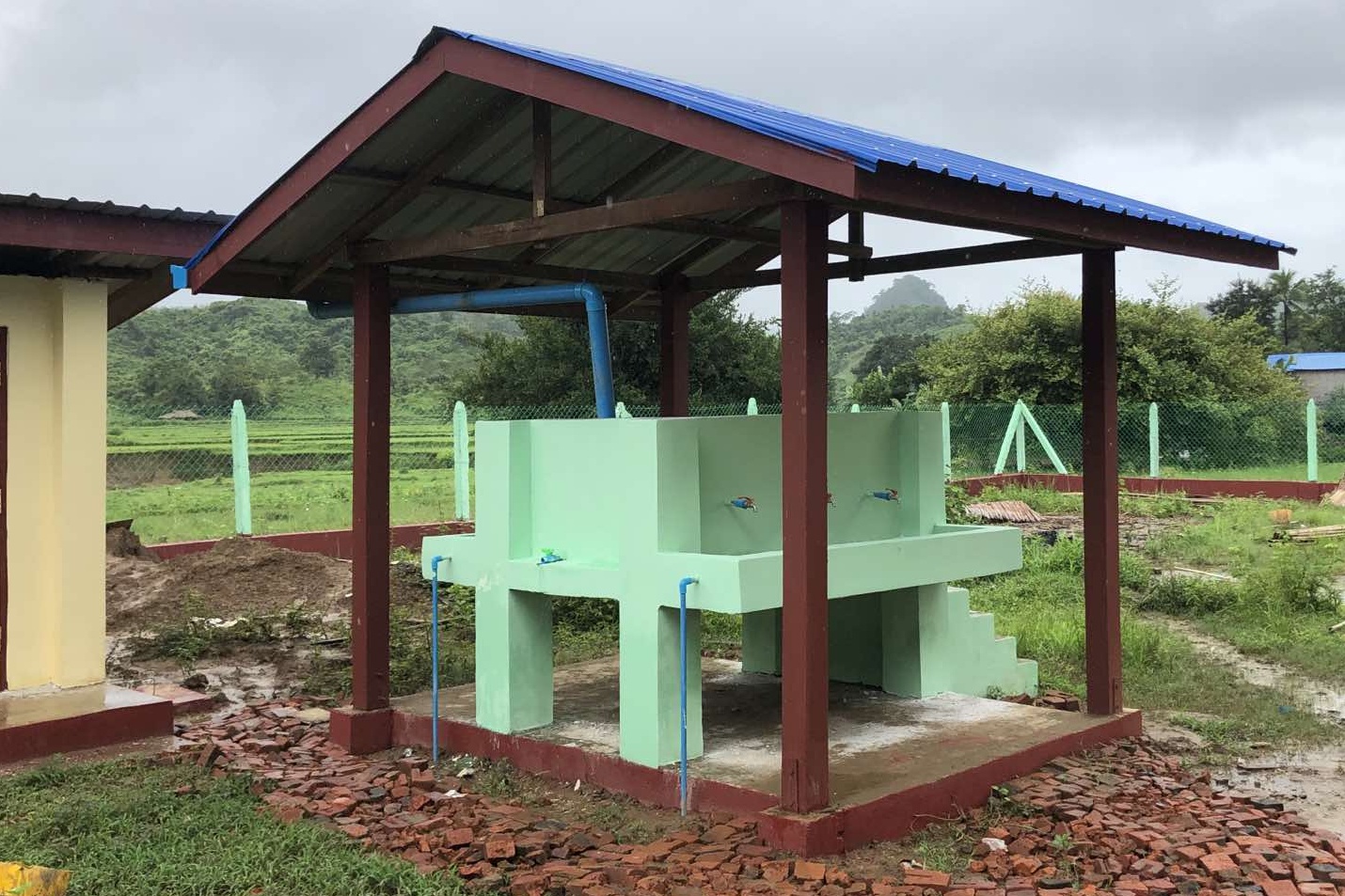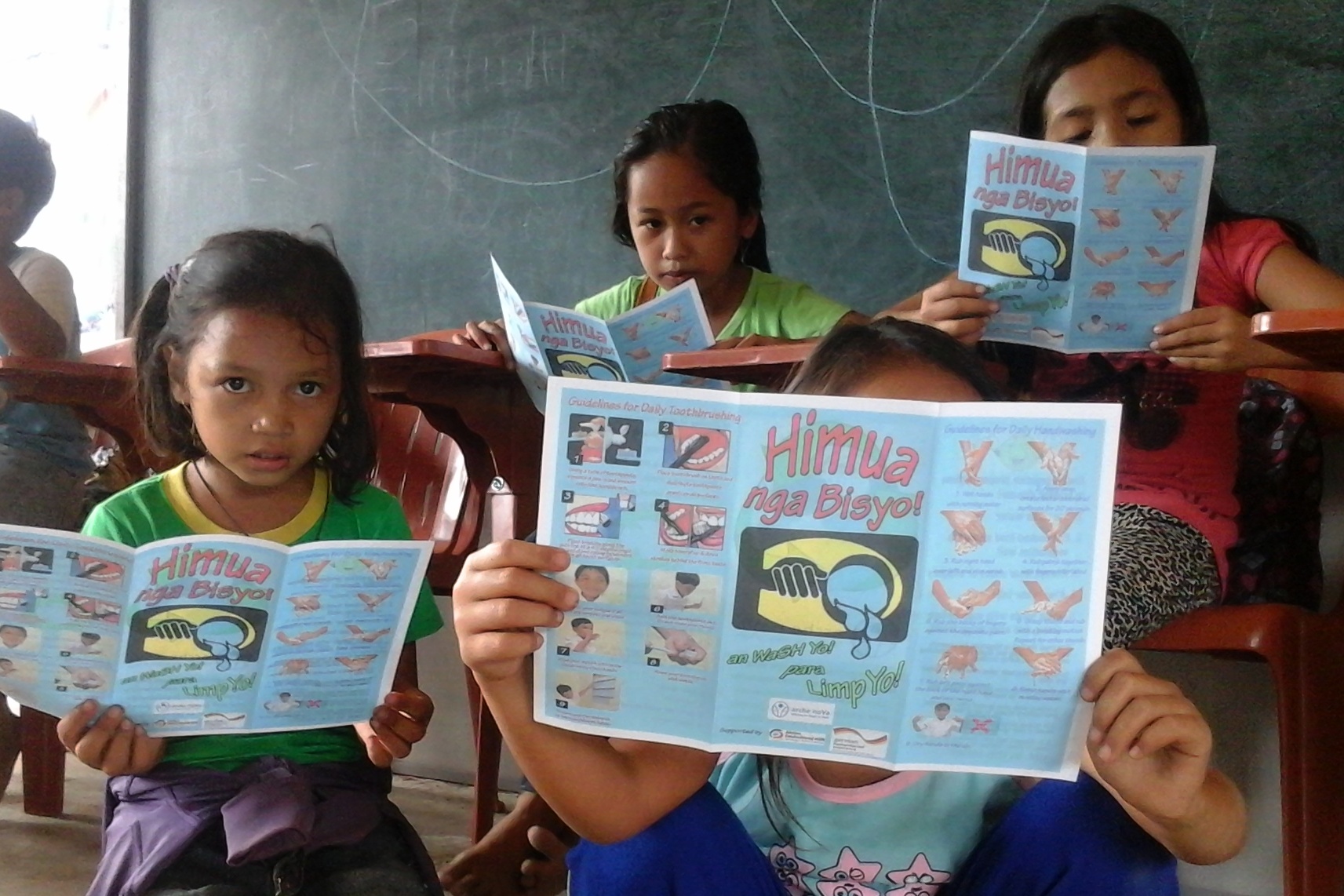Hand washing is one of the most important issues that arche noVa promotes as part of the hygiene measures in the WASH projects worldwide. The benefits of hand washing go beyond protecting one's own health. Good handwashing can prevent disease outbreaks, reduce absenteeism from school and improve health outcomes. That's why health experts call it a "do-it-yourself vaccination" because it's easy, effective and affordable.
arche noVa has handwashing on the agenda
The activities that arche noVa implements together with local partner organisations for the dissemination of hand washing in different project countries range from the creation of technical prerequisites to hygiene training:
- Construction of water supply systems and installation of hand-washing sinks, especially at health centres and schools in disadvantaged regions with weak infrastructure
- Mobilisation and instructions for replicating simple hand washing opportunities (Tippy Taps)
- Distribution of soap in crisis areas and emergencies
- Supporting local soap production in remote, rural communities
- Awareness-raising and education on infectious diseases and preventive health care with good hygiene practices
- Promoting sustainable behaviour change
Donate for this project
Without good hand hygiene, lives are at risk
The good news is that by 2020, 71 per cent of all people worldwide had access to a basic handwashing facility. But this also means that 2.3 billion people do not have such basic services, including 670 million people who had no hand-washing facilities at all. More than half of these people live in fragile contexts. Here, water supplies are often unsafe and access to soap at the household level is difficult. Where the opportunity for good hand hygiene is lacking, lives are at risk.
- Every year, 1.4 million children die of diarrhoea or pneumonia.
- Infections cause 15% of neonatal deaths.
- Every year, 300,000 women die during childbirth and one million babies do not survive the first 24 hours of their lives because hands contaminated with pathogens cause serious infections during the birth process and thus considerably endanger the health of mother and child.
- Over 810 million children and young people currently have no opportunity to wash their hands at their schools.
Washing hands works
Many infectious diseases are transmitted via the hands. In general, all pathogens that are transmissible via so-called contact or smear infections can be passed on via the hands. This can happen directly from person to person and often also via objects.
- Washing hands with soap at critical times - such as after going to the toilet or before cooking or eating - can reduce diarrhoea by almost half and respiratory infections by about 25 % in children under five.
- Children who live in households where handwashing is encouraged and soap is available are half as likely to contract pneumonia as children who do not have these conditions.
- Regular hand washing with soap reduces the likelihood of COVID-19 infection by 36% because soap destroys the outer membrane of the virus, deactivating it.
Global Handwashing Day on 15 October
This year's theme highlights the importance of hand washing for food hygiene and nutrition. The slogan "Clean hands - a recipe for health" reminds us to make handwashing part of every meal.
More information and the sources of the facts: https://globalhandwashing.org

